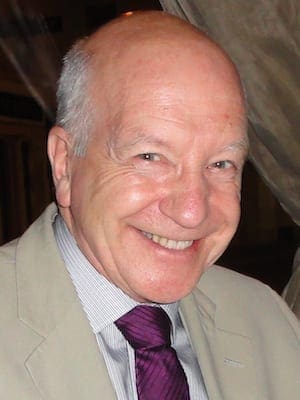“Our minds are constantly trying to bring God down to our level rather than letting him lift us into levels of which we were not previously capable.”
I found myself agreeing wholeheartedly with that statement even before I finished reading it. I then nodded in full affirmation once I had read it through and thought about it.
Our capacity for life, for love, for God, is not so much a given finitude, nor an inevitable constraint of limits due to our incapacity as human beings.
Rather, it is our anxious clinging to the familiar – our privileging of past experience as the criterion for what is possible, real and significant.
There is comfort in reaching a plateau with the hard work and the upward climb behind us.
We are always tempted to settle for what we have and where we are, to be content in the now and allow the present to determine the future.
The known is secure, the familiar is reassuring, and both these attractive complacencies remove from our lives one of the essentials of faith: risk.
In his book, “My Bright Abyss: Meditations of a Modern Believer,” Christian Wiman, quoted above, goes on to say something crucial for our spiritual health and human fulfillment:
“What might it mean to be drawn into meanings that, in some profound and necessary sense, shatter us?” Wiman writes. “This is what it means to love.”
Choosing to love God, other people, the world and, yes, to truly, completely and honestly love ourselves is a risk that carries within it not only the potential for, but also the certainty of, loss, pain, suffering and wounds, maybe even death.
Those same risks carry within them not only the potential but also the certainty of gain, joy, companionship and healing.
And therein lies the choice, insulated safety with the familiar or exposure to risk by being open to that which might shatter us, the transcendent.
At least that’s what it would be like if it weren’t for that mysterious, disruptive, compassionately sovereign and unpredictably tough movement in our hearts and in the world that we call grace – the grace of God.
“There but for the grace of God go I” is a familiar cliché.
Just as true to life, and far less comforting, is the confession: “Here but for the grace of God I would stay.”
To add cliché to cliché, John Newton knew a thing or two when he wrote: ”’Twas grace that brought me safe thus far / and grace will lead me home.”
Home isn’t here, though. Home isn’t what we settle for or settle into. Home is where God is taking us – the journey isn’t finished, the destination isn’t reached.
Instead of bringing God down to our level, God calls us to follow to levels beyond our present capacity. God draws us into meanings that will shatter us because that is what love does.
And in that creative process, the shattering allows us to grow out of the carapaces of limiting habit, complacent achievement and comforting safety.
The love of God, which calls for an answering, risk-taking love on our part, draws us out of the known to the unknown – out of security to risk and out of contentment with stagnation to drink at the wells of that living water, which is inexhaustible, life-giving and will sustain us on the way home.
And in all the senses that matter, the true home of the human heart is in God, in whose image we are created and into whose eternal love we are called.
 Jim Gordon recently retired as principal of the Scottish Baptist College. He continues to lecture there in church history and systematic theology. A version of this article first appeared on his blog, Living Wittily, and is used with permission.
Jim Gordon recently retired as principal of the Scottish Baptist College. He continues to lecture there in church history and systematic theology. A version of this article first appeared on his blog, Living Wittily, and is used with permission.
Part-time minister of Montrose Baptist Church in Angus, Scotland, and the former principal of the Scottish Baptist College. He is on the advisory board of the Centre for Ministry Studies, University of Aberdeen, and is honorary lecturer in the School of Divinity, History and Philosophy.

